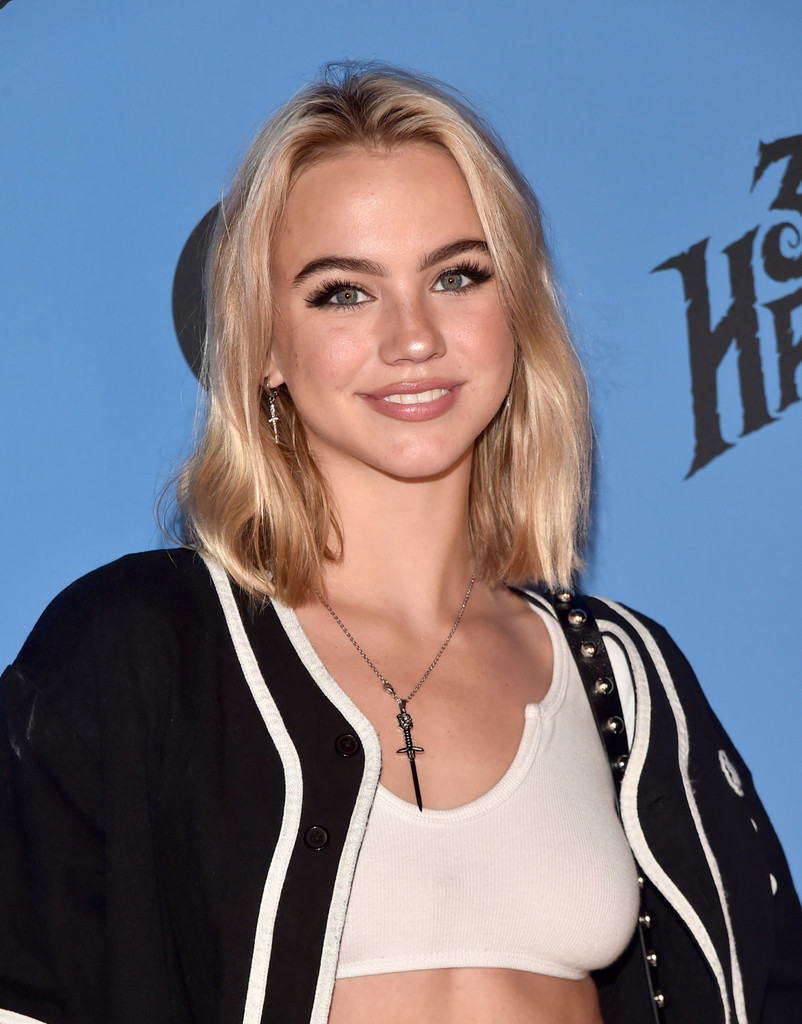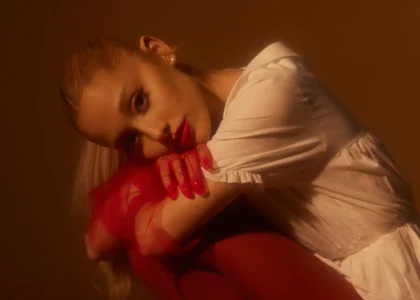The 19-year-old multi-hyphenate talked with us about building a brand while nurturing what really matters.
Emma Brooks McAllister grew up in the relatively small bayou city of Houma, Louisiana (population 33,000), and she always wanted to be involved in the entertainment industry in some way, but she never expected to become a content creator. She spent much of her adolescence modelling for companies such as Savage X Fenty, Guess, and Paul Mitchell, and in 2019 she was crowned Miss Louisiana Teen. Brooks moved to Los Angeles at the age of 18 for an internship at a fashion and public relations firm, and as she recalls, “My social media just started to take off about seven to eight months after I moved here. That love of creating just sort of came with it.”

With over 1.7 million Instagram followers and 3.8 million TikTok followers, it’s safe to say she’s made a quick impression as an influencer, and has begun more actively collaborating with designers, as well as having her own clothing brand and online platform called 50/50, which will focus on spreading more awareness around mental-health disorders.
In fact, Brooks would argue that her most valuable work is not in business, but as an advocate for mental health. She has long been open about her struggles with bipolar disorder, anxiety, and clinical depression, and her bravery and transparency have inspired millions.
The 19-year-old up-and-comer radiated positive energy and was all smiles as she sat down for a recent Zoom interview, dressed in a stylish red top from one of her favourite stores: Urban Outfitters. And her enthusiasm for talking about everything from business ventures, favourite collaborations, and fan interactions to her journey balancing her mental health and entrepreneurial endeavours was palpable.
Below are some excerpts from our lengthy conversation, as well as links to recommended resources that have aided not only Emma, but thousands of others in their personal battles with mental illnesses.
You’ve been an outspoken advocate for mental-health awareness. Please tell us about your own difficulties.
It all started when I was first diagnosed with anxiety and depression. Everything became very real in my head during high school. That’s when I started getting other diagnoses, and mental health became an important part of my life. I was thrown into therapy at the age of 14, which was a good thing because I wanted to be. I was bullied in high school, and it was difficult to deal with those traumas as a child dealing with obnoxious men. I was admitted to the hospital at the age of 15, and things became very serious. I had no idea how serious it was until I got out. I wanted to keep trying, but I had no idea what coping mechanisms existed. Instead of just talking, I began asking my therapist questions about what it all meant.

What has changed to make you feel better today?
My support system has greatly improved. I moved to Los Angeles and met a lot of wonderful people. It’s a difficult thing, and it motivates me to work harder to normalise it. Being in the hospital makes you feel smaller than you are. It’s difficult not to be upset. It’s a very objectifying environment. It’s part of the stigma that if you go to a mental hospital, you’re insane. That is not correct. That must be normalized.
What are some key ways you deal with depression that allow you to juggle all of your responsibilities as an entrepreneur?
I personally see a therapist on a weekly basis, but I also do other things. I’m returning to yoga, which was a huge part of my recovery when I was younger. My mother was a big yoga fan. I used to accompany her, and it was a huge mental relief for me. Particularly when meditating. Apps like Waking Up offer self-guided meditations that can be extremely beneficial. And I enjoy reading, which helps a lot. At night, I like to read a lot.
What do you think others should do if they are suffering from mental illness or are feeling overwhelmed while running their business?
The first and most important thing I believe people dislike is asking for help. Request assistance. Consult a therapist. There are online support groups. HeadHelp.io is a community where people can post and talk anonymously. It’s a desire to try new things and a search for motivation. It’s all a matter of trial and error. Not everything you do will be successful, but there will be something.

What are some other mental health resources that you’ve found useful in your journey?
You can find statistics/facts, support groups, community centers, and youth groups at the National Alliance on Mental Illness. They have various branches throughout the United States.
What is the long-term goal for 50/50 and beyond?
The main goal of 50/50 is to simply contribute to the normalisation of a mental-health brand. Essentially, I want it to become a go-to resource for people. There will be a discussion. Instead of taking you to a page where you can buy more clothes, it will take you to a page about mental health. And I’m really interested in acting because I have a lot of emotions. But it’s something I’ve wanted to do for a long time. Modeling and acting are inextricably linked.









